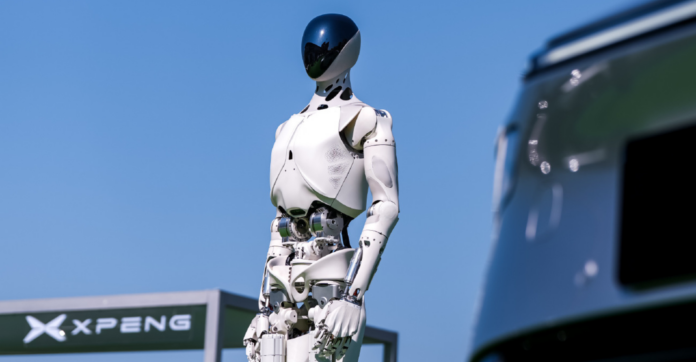XPeng CEO He Xiaopeng shared his insights on the future of the humanoid robot market on February 21.
He revealed that he recently spoke with industry leaders, including Wang Xingxing from Unitree and Zhou Jian from UBTECH Robotics. According to He, today’s humanoid robots are still at Level 2 (L2) autonomy, comparable to early-stage assisted driving. However, the industry is pushing toward Level 3 (L3) robots that are commercially viable and mass-producible—a leap that represents an exponential increase in both capability and complexity. This is also the goal for XPeng’s Iron humanoid robot.
He further noted that unlike autonomous driving, where L3 autonomy could mark the “iPhone 4 moment”, general-purpose humanoid robots will need to reach Level 4 (L4) before they can truly enter households. Achieving this will require several more years of development.
SEE ALSO: Xpeng to Launch True L3 Autonomous Driving by Late 2025
XPeng’s Five-Level Framework for Humanoid Robots
L1: No Autonomous Control
Fully operated by a human, with no independent decision-making.
L2: Basic Assisted Intelligence + Operator Supervision
Executes pre-programmed movements and maintains stability but still requires constant human oversight.
L3: Embodied Intelligence + Training Supervision
Operates independently in trained scenarios but may require human intervention.
L4: Self-Learning Intelligence + Minimal Supervision
Handles complex adaptive and collaborative tasks with minimal human oversight.
L5: AGI/ASI Full Autonomy
Exhibits human-level or superhuman intelligence and physical capabilities, operating independently within legal and ethical constraints.
XPeng has already developed two generations of humanoid robots. The latest model, XPeng Iron, launched in late 2023, features a humanoid design standing 178 cm tall and weighing 70 kg.
According to He Xiaopeng, Iron integrates multiple in-house AI chips supporting end-to-end large models. It features 15 degrees of freedom in its biomimetic hands, which include haptic feedback for enhanced dexterity. Currently, Iron is undergoing real-world training at XPeng’s Guangzhou factory, assisting in the production of XPeng P7+ vehicles. The company plans to deploy the robot in factory and retail environments in the future.
According to Pacific Securities, automakers have strategic advantages in humanoid robotics. Factory environments, with their highly repetitive and standardized tasks, are well-suited for humanoid robots. Automakers also understand industrial challenges and have the resources to experiment. Additionally, technology convergence allows automakers to adapt vehicle AI algorithms for humanoid robots, accelerating innovation.
Sign up today for 5 free articles monthly!





